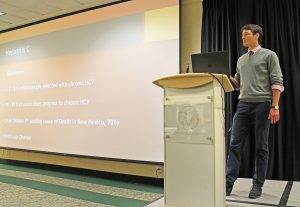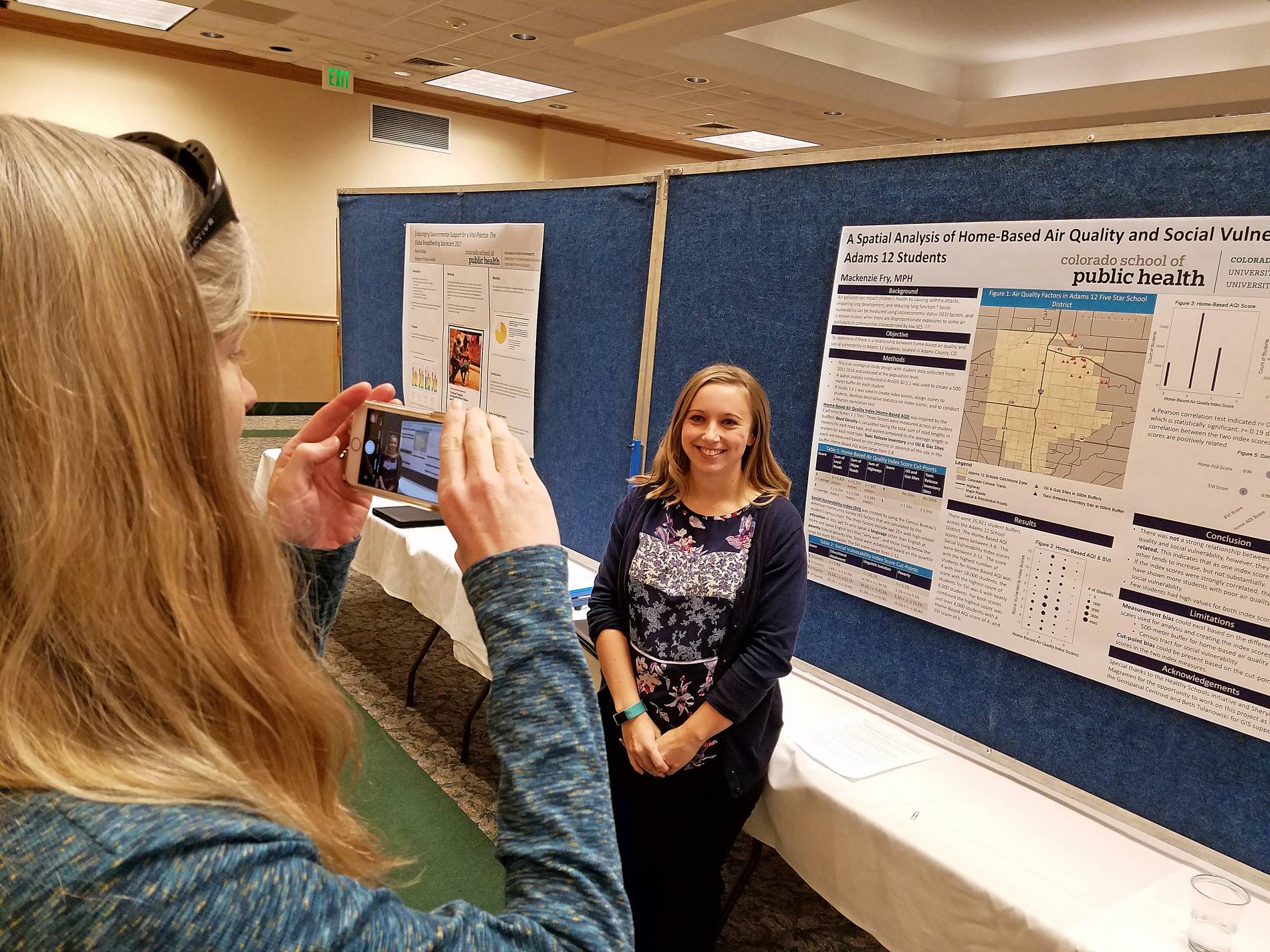For Katherine Cooley, it was learning as a Peace Corps volunteer that 100 percent of Togo’s population is at risk for malaria. For Drew Faturos, it was an interest in finding out more about New Mexico’s high rate of hepatitis C. As ColoradoSPH at CSU students delve deep into their public health studies, they follow facts and data into areas of research that culminate with a capstone project.
On December 1, nine MPH students presented the outcome of their capstone projects, with topics ranging from the impact of gender and caste on access to healthcare in rural India, to food insecurity in the Galapagos Islands and spatial analysis of home-based air quality for Adams County, Colorado, students. Students conceptualize and complete capstone projects in their concentration areas, applying skills and competencies learned in the classroom to public health initiatives.
For Emily Prisco, that meant studying employee health and wellness at an Aurora, Colorado, dairy farm. Working in conjunction with Health Links, Prisco studied employee wellbeing at the farm, with the objective of improving workplace safety and health standards.
“Traditionally, the dairy farmer has always cared for the cows and people have come last,” she explained. “Agriculture employers are legally exempt from providing paid overtime, and they don’t have to provide lunch or breaks for employees. We’re aiming to change this standard in the dairy industry through employee health and wellness.”
 Also focusing on human health and wellness, Phu Mai sought to understand how caste and gender inequalities impact access to healthcare in rural Maharashtra, India. Through interviews and visits to non-profits working in rural Maharashtra, he found that members of lower castes have lower immunization rates and limited access to basic health services, and that “gender inequality has a significant impact on access to healthcare,” he said.
Also focusing on human health and wellness, Phu Mai sought to understand how caste and gender inequalities impact access to healthcare in rural Maharashtra, India. Through interviews and visits to non-profits working in rural Maharashtra, he found that members of lower castes have lower immunization rates and limited access to basic health services, and that “gender inequality has a significant impact on access to healthcare,” he said.
Not only do gender and socioeconomic status limit access to healthcare, but geography can, too. In her research on food insecurity and pregnancy in the Galapagos Islands, Courtney Butnor found that the islands’ location four hours by cargo ship from the Ecuadorian mainland impacts residents’ access to affordable fresh food.
“Local doctors are growing concerned with the growing numbers of pregnant women exhibiting physical symptoms of food insecurity, who are underweight or showing signs of malnutrition,” she said.
Based on her research, she proposed further building an inter-institutional network to seek and reach marginalized people in the Galapagos Islands, especially pregnant women with low socio-economic status.
Students may complete capstone projects locally, nationally or internationally.

